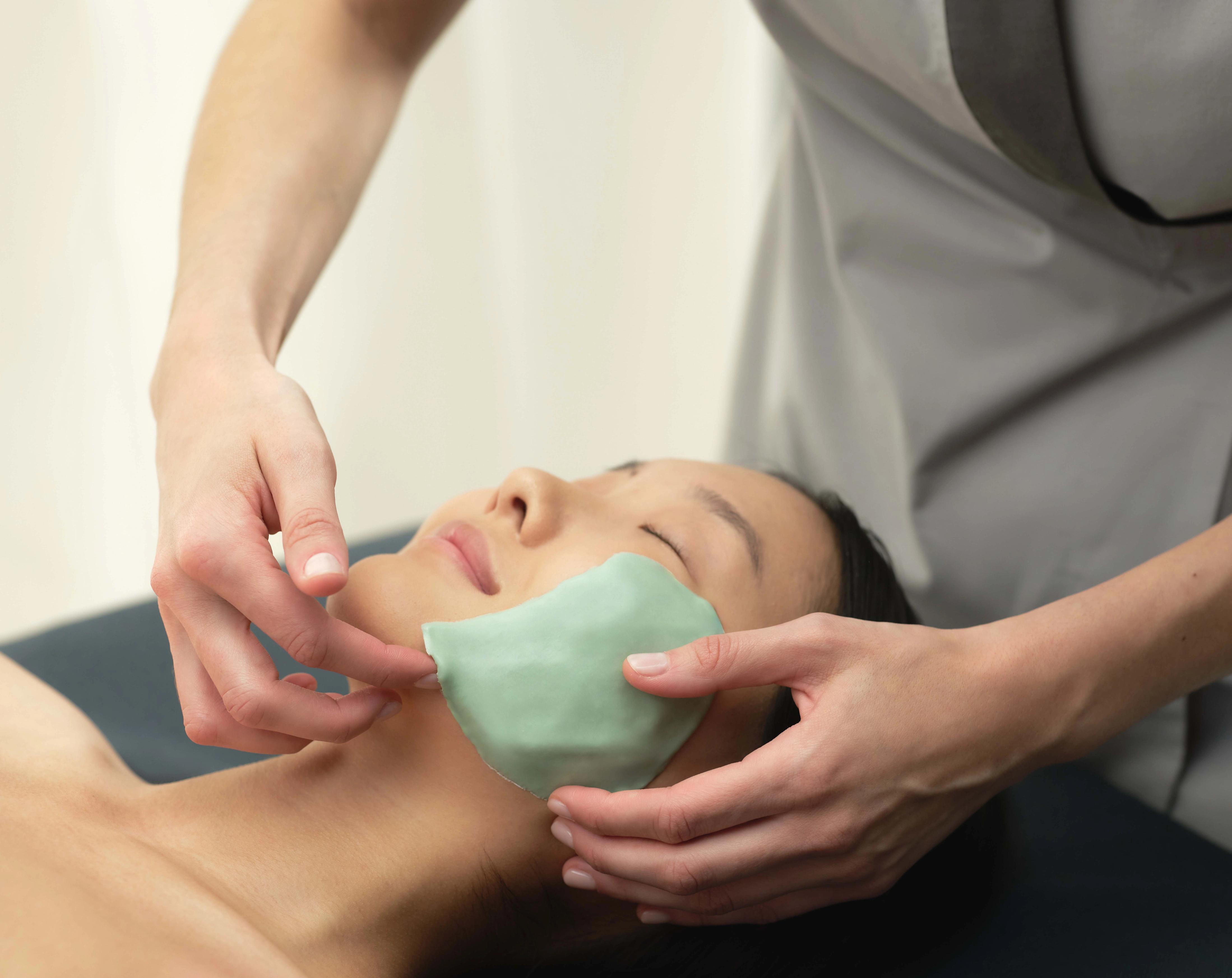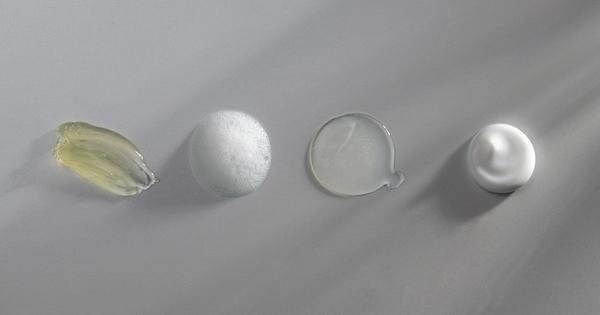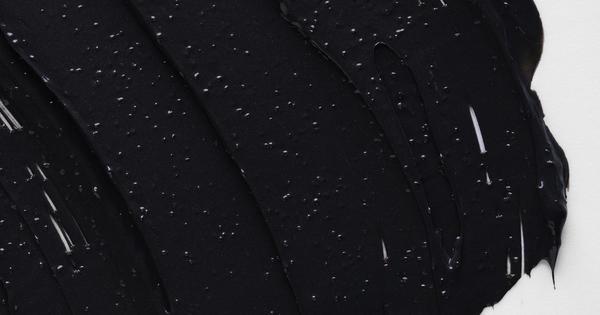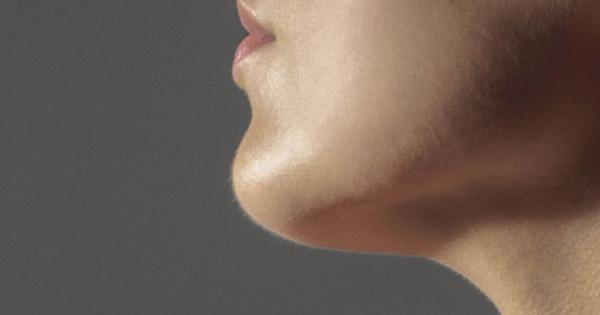Sublime Skin Lift-Mask
Immediate effect mask
skin care
Maria Giulia Simonazzi | International Training Manager
10 min read

While skincare trends may ebb and flow, the face mask has proven to be a timeless treatment with undeniable benefits. Whether you want to address stressed-out skin or combat persistent breakouts, face masks will not only enhance the look and feel of your skin but also give you a spa-like experience. However, with a wide variety of face masks promising many benefits, selecting the right one and determining how often we should incorporate it into our skincare routine can be tricky. This blog will explore the benefits of various face masks while guiding you on when to use them.
"Face masks are designed to give a boost of deeper-acting ingredients for whatever skin concern you have. Oily or break-out prone skin benefits from masking 2-3 times a week. Hydrating and moisturizing masks are ideal weekly, although in dry weather conditions, twice a week may be beneficial. "
Elisabeth Nehme - Global Brand Ambassador Comfort Zone
Face masks won't magically solve all your skin problems in one go, but they do add a nice boost to your skincare routine. They can also be a fun part of your self-care or a pick-me-up before a special occasion. Besides the pleasure of a little pampering, they bring practical benefits, targeting specific skin concerns. Many face masks are enriched with potent serums. For instance, a hydrating mask infused with collagen may nourish and replenish your skin, while masks with AHAs can target both the oily and dry areas, common in combination skin. So, whether you're dealing with acne, dryness, or signs of aging, there's a face mask that fits your skin's unique needs.
The advantages of incorporating facial masks into your skincare routine extend far beyond their protective function. One of the key benefits of using face masks is their remarkable ability to deeply cleanse the skin. Unlike daily cleansing which helps to remove surface impurities and eliminate excess oil, face masks excel at reaching beneath the skin’s surface to provide a true deep cleanse. This targeted cleansing process can significantly reduce the likelihood of acne, inflammation, and breakouts, promoting clear, healthier skin.
Formulated with a variety of nourishing ingredients, face masks are crafted to offer distinct benefits. Common ingredients found in face masks are hyaluronic acid, antioxidants, charcoal, and vitamins that not only hydrate but also support the skin’s natural rejuvenation process. This is why the skin often looks healthier and more luminous following a face mask session.

In determining the frequency of face mask application, several factors come into play. An essential consideration is skin type. Those with oily or acne-prone skin may find benefit in incorporating a face mask into their routine more frequently, around 2-3 times a week. This consistent use aids in controlling excess sebum and preventing breakouts.
On the other hand, individuals with sensitive or dry skin should exercise caution, opting for a more conservative approach of once a week. This helps prevent the possibility of over-drying or irritation, ensuring the skin’s delicate balance is maintained.
An additional consideration is the type of face mask chosen. Gel masks are ideal for sensitivity, offering a soothing and hydrating experience that nurtures and rejuvenates the skin. Masks enriched with active ingredients, such as salicylic acid for combating blackheads or hyaluronic acid for intense hydration, can offer tailored solutions for specific skin concerns.
The ingredients play an important role because they are in contact with the face for a longer time due to the nature of a face mask. Making sure the face mask you choose aligns with the unique needs of your skin can lead to a refreshed, revitalized, and balanced complexion. If you're looking for a more customized and targeted approach, seeking guidance from a dermatologist or other skincare professional can provide you with valuable insights.
Face masks can cater to a spectrum of skin types and concerns. Specifically, clay masks, peeling masks, and exfoliating masks each play a distinct role in enhancing overall skin health. Let’s take a closer look at their benefits:

Clay masks are a popular skincare treatment known for their ability to purify and revitalize the skin. Typically formulated with various types of mineral-rich clays such as kaolin, bentonite, or French green clay, these masks work by drawing out impurities, excess oil, and toxins from the skin's surface. Ideal for individuals with oily skin or combination skin, clay masks are particularly effective in controlling sebum production and minimizing the appearance of pores. They can also be beneficial for those prone to acne, as they help to unclog pores and prevent breakouts. Additionally, clay masks provide a gentle exfoliation, promoting a smoother and more refined complexion. To incorporate clay masks into a skincare routine, it is recommended to use them once or twice a week, depending on individual skin sensitivity. Overuse may lead to dryness, so it's essential to follow up with a hydrating moisturizer to maintain the skin's balance.
Comfort Zone’s Active Pureness Mask— a creamy clay mask infused with kaolin and green clay — gives the skin a radiant look and helps minimize pores. It's a great treatment to use to fight blemishes.
Peeling masks are another great option for those seeking to relieve dullness and improve skin texture. A typical peeling mask formula is designed to transform and harden to effectively remove the build-up of dirt, oil, and dead skin cells. Often infused with vitamins, antioxidants, or fruit extract, peeling masks gently remove the outer layer of skin to reveal a glowy complexion. This process imparts a range of benefits, from hydration to rejuvenation and brightening. It is recommended to use peeling masks one to two times a week to unveil a radiant glow.
The Comfort Zone Essential Peeling face mask is a delicate peeling mask that features Bromelain and eliminates impurities, dead skin cells, and excess sebum. This gentle formulation reawakens luminosity, leaving the skin soft and smooth.

Exfoliating masks are another commonly used face mask. One of the most popular exfoliating mask types is the mechanical or physical exfoliant, which contains tiny particles that slough away dead skin cells when massaged onto the face. This method unveils a renewed and invigorated complexion, making it the preferred option for individuals seeking to improve the texture of their skin.If you have sensitive skin, consider opting for a gentler alternative in the form of enzyme exfoliating masks. These masks leverage natural enzymes from ingredients like papaya or pineapple, delicately dissolving dead skin cells. The result is smoother and brighter skin without the risk of irritation. Exfoliating masks can be used two to three times a week.
Face masks are more than a trend, they're a timeless treatment. With many options available catering to various skin types and concerns, incorporating face masks into your routine is sure to help you achieve radiant and healthy skin.
To elevate your skincare routine, explore the range of face masks available at Comfort Zone. This way, you can personalize your approach and enjoy the transformative effects from the comfort of your home.
Immediate effect mask
Purifying clay mask
refining and illuminating freeze-dried mask
Delicate enzymatic mask